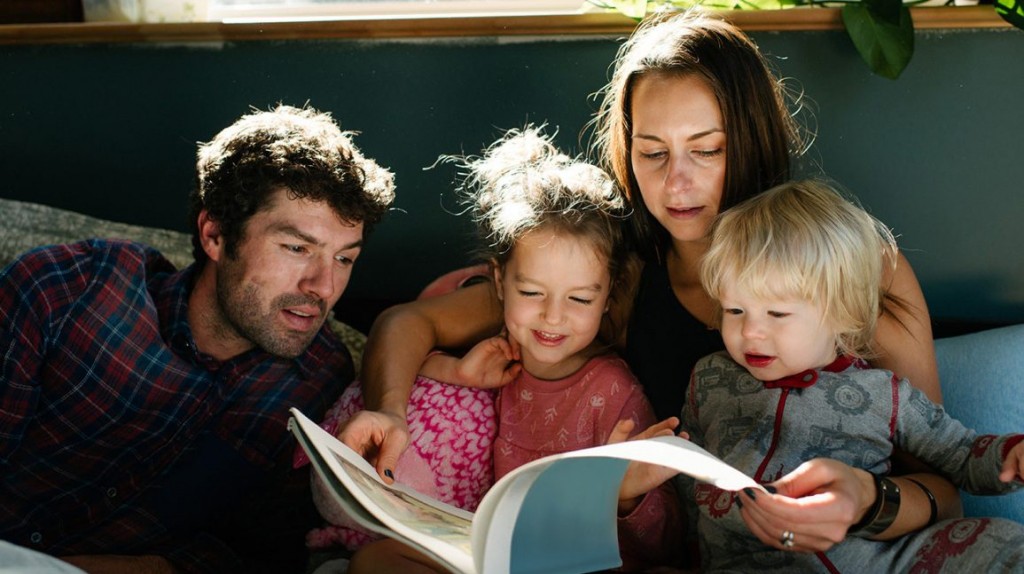
To be a parent is a life-time commitment, but, nevertheless a tough trial.
Parenting isn’t an easy task, and as a parent the hassle of dealing with a challenging environment, makes it more taxing. To parent is to act as a protector, counselor and guide. But, we often forget that children learn by imitating the parent; your child models upon your habits and actions. How do you deal with problematic role-models in your close circles or cope with your child’s stubbornness, aggressive or hyperactive behaviours, learning difficulties, memory issues or a poor attention and concentration? To be able to manage tantrums or misbehaviour can be exhausting and demotivating. A certain degree of guidance and training can help parents identify with patterns of behaviour to develop a strong defense.
Parenting in the Modern World
We may find ourselves battling time in our modern day lives. We may also experience new challenges such as gadget use, internet addiction and easy access to online communities making our children more vulnerable and isolated. Violent forms of video games and exposure to unwelcome information can cause children to develop certain emotional characteristics early on. Sometimes, lack of time in nuclear families set-up, with working parents doesn’t allow for enough attention. In many cases your child maybe struggling with psychological, physical or medical concerns. It’s possible that constant exhaustion and stress without a support system can cause a burn-out. These patterns are unique to each families and require special targeted attention in terms of parenting.
What are the different parenting styles?
In your quest for an effective parenting style, you may find yourself confused. Some of the popular parenting styles are:
- Authoritarian: This parenting style involves a dictatorial or controlling approach where the parent enforces rules and remains insensitive to the child’s needs. Very often, it takes the form of punishments or shaming the child. This type of parenting can leave the child feeling unwanted, unconfident, anxious or cold. He/she may be troubled in areas of decision-making or being creative.
- Authoritative: This type of parenting style is a balance of control and compliance. The parent has rules, but, also responds to the child’s needs. While there is stern regulation, children feel comfortable to discuss and negotiate. Children find space to grow, create strong parental bonds and learn the importance of healthy boundaries.
- Permissive: A permissive parent typically does not exercise restraint, does not define rules or create boundaries for the child. There is a lack of regulation, limited guidance and can border on negligence. Saying yes to everything may lead the child to develop poor decision-making skills, low sense of accountability or other unhealthy self-regulating strategies
- Uninvolved: An uninvolved parent is mostly absent or unavailable to attend to a child’s needs. They appear inactive, passive, dismissive and disinterested. Little effort to create an emotional bond or create a support system is made. While the child feels neglected, he/she may develop poor attachment styles, anxiety or stress.
- Helicopter parenting: Helicopter parenting involves an excessively controlling and overly protective obsession with the child. They offer no privacy or freedom. Constant control, pushy behaviour, regular monitoring and stricter boundaries can make the child feel confined leading to underdeveloped coping mechanisms or life skills.
Different parenting styles impact children in their respective ways. Hence, we have to comprehend our role as parents to manage their emotions, difficulties and problems, with patience and empathy. Strong bonds of trust require attention and commitment which is achievable by balancing your authority with sensitivity and openness. This may need some positive or negative rewarding cycles or learning techniques to manage your child’s behaviour. This is where Udgam can help you.
How can Udgam help you?
Here at Udgam, we understand the obstacles a parent faces. A variety of factors can make it a tough journey. Know that you aren’t alone in this experience. Any effort to develop healthy parenting styles is the first step to create a strong bond.
Udgam offers a steady platform with a holistically involved team. We have a diverse team of mental health professionals including clinical psychologists, speech therapists, special educators and occupational therapists. Our team members have several years of experience in the field and will help identify your parenting style and improve it, if needed. We may also find it necessary to run assessments on your children and offer intervention. Many times, parent training to learn effective techniques may help immensely; such as designing lessons and tasks, moderating behaviour, evaluating learning styles and mentoring. All this will be done while encouraging self control with keen supervision.
Parenting in the Modern World
We may find ourselves battling time in our modern day lives. We may also experience new challenges such as gadget use, internet addiction and easy access to online communities making our children more vulnerable and isolated. Violent forms of video games and exposure to unwelcome information can cause children to develop certain emotional characteristics early on. Sometimes, lack of time in nuclear families set-up, with working parents doesn’t allow for enough attention. In many cases your child maybe struggling with psychological, physical or medical concerns. It’s possible that constant exhaustion and stress without a support system can cause a burn-out. These patterns are unique to each families and require special targeted attention in terms of parenting.
What are the different parenting styles?
In your quest for an effective parenting style, you may find yourself confused. Some of the popular parenting styles are:
- Authoritarian: This parenting style involves a dictatorial or controlling approach where the parent enforces rules and remains insensitive to the child’s needs. Very often, it takes the form of punishments or shaming the child. This type of parenting can leave the child feeling unwanted, unconfident, anxious or cold. He/she may be troubled in areas of decision-making or being creative.
- Authoritative: This type of parenting style is a balance of control and compliance. The parent has rules, but, also responds to the child’s needs. While there is stern regulation, children feel comfortable to discuss and negotiate. Children find space to grow, create strong parental bonds and learn the importance of healthy boundaries.
- Permissive: A permissive parent typically does not exercise restraint, does not define rules or create boundaries for the child. There is a lack of regulation, limited guidance and can border on negligence. Saying yes to everything may lead the child to develop poor decision-making skills, low sense of accountability or other unhealthy self-regulating strategies
- Uninvolved: An uninvolved parent is mostly absent or unavailable to attend to a child’s needs. They appear inactive, passive, dismissive and disinterested. Little effort to create an emotional bond or create a support system is made. While the child feels neglected, he/she may develop poor attachment styles, anxiety or stress.
- Helicopter parenting: Helicopter parenting involves an excessively controlling and overly protective obsession with the child. They offer no privacy or freedom. Constant control, pushy behaviour, regular monitoring and stricter boundaries can make the child feel confined leading to underdeveloped coping mechanisms or life skills.
Different parenting styles impact children in their respective ways. Hence, we have to comprehend our role as parents to manage their emotions, difficulties and problems, with patience and empathy. Strong bonds of trust require attention and commitment which is achievable by balancing your authority with sensitivity and openness. This may need some positive or negative rewarding cycles or learning techniques to manage your child’s behaviour. This is where Udgam can help you.
How can Udgam help you?
Here at Udgam, we understand the obstacles a parent faces. A variety of factors can make it a tough journey. Know that you aren’t alone in this experience. Any effort to develop healthy parenting styles is the first step to create a strong bond.
Udgam offers a steady platform with a holistically involved team. We have a diverse team of mental health professionals including clinical psychologists, speech therapists, special educators and occupational therapists. Our team members have several years of experience in the field and will help identify your parenting style and improve it, if needed. We may also find it necessary to run assessments on your children and offer intervention. Many times, parent training to learn effective techniques may help immensely; such as designing lessons and tasks, moderating behaviour, evaluating learning styles and mentoring. All this will be done while encouraging self control with keen supervision.


